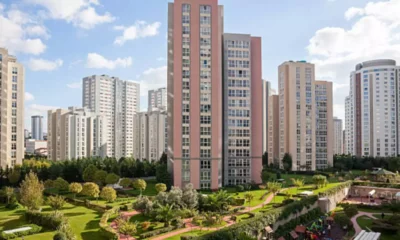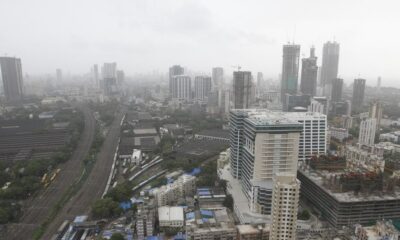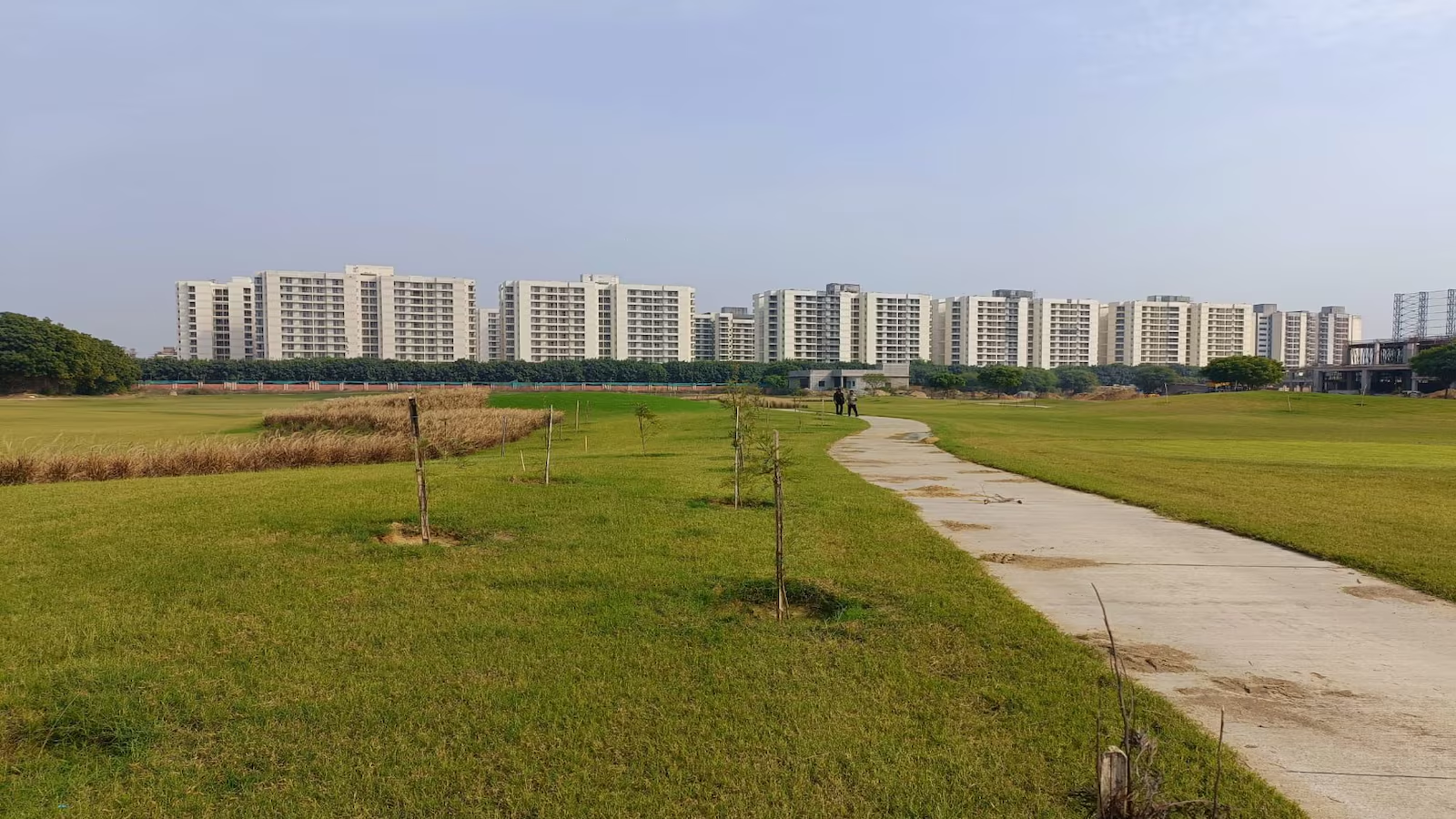Report
Delhi-NCR housing sales up by 50 pc in April-June quarter, says PropTiger report


Sales of residential properties in Delhi-NCR, the country’s biggest real estate market, went up by 50 per cent year-on-year (Y-O-Y) during April-June this year on higher demand, despite the second wave of COVID-19 pandemic, according to a report by PropTiger.com.
In its quarterly report Real Insight (Residential) – April-June 2021, PropTiger, reported that sales in primary markets of Delhi-NCR increased to 2,828 units during April-June 2021 from 1,886 units in the year-ago period.
Delhi-NCR, Ahmedabad and Hyderabad were the only three cities out of total eight major markets, tracked by PropTiger, that witnessed an increase in sales numbers.
The remaining five cities — Mumbai Metropolitan Region (MMR), Pune, Bengaluru, Kolkata and Chennai saw decline in demand.
Across eight cities, sales were down by 16 per cent to 15,968 units in the second quarter of this calendar year from 19,038 units in the same period last year. On a sequential basis, sales were down by 76 per cent.


On a sequential basis, housing sales in Delhi NCR declined 54 per cent to 2,828 units during April-June from 6,188 units in the previous quarter. The demand was almost washed out during April and May because of the devastating impact of the second wave on human lives.
Delhi-NCR was one of the worst affected cities during the second wave of coronavirus infections.
Delhi-NCR – an agglomeration of five main cities of Gurugram, Faridabad, Noida, Greater Noida, and Ghaziabad – was second only to Mumbai Metropolitan Region (MMR) in terms of housing sales, accounting for 18 per cent in the overall national sales. Mumbai contributed nearly 21 per cent to the overall sales.
With 1,020 units sold, Gurugram had a share of 36 percent- highest in the overall sales among the main cities in NCR. Faridabad and Ghaziabad took a share of 18 percent and 12 percent, respectively.
Demand also picked up in Noida and Greater Noida, contributing a 34 percent share in the overall sales in Delhi NCR.
In Gurugram, sales increased to 1020 units during April-June 2021 from 885 units in the same period last year. Demand was down from 2946 units in the previous quarter.
Sales in Greater Noida stood at 521 units, up from 484 units in Q2 of 2020. As many as 1153 units were sold in the previous quarter.
Noida saw sales of 437 units during April-June this year. Demand stood at 361 units in the year-ago period and 1132 units in the previous quarter.
In Ghaziabad, housing sales rose to 331 units in Q2, 2021 from 152 units in the corresponding quarter of 2020. Sequentially, demand fell from 801 units.
Faridabad saw a sharp jump in sales to 519 units during April-June this year. Demand stood at 4 units in Q2, 2020 and 156 units in the January-March quarter this year. Faridabad remained the only micro-market in NCR that witnessed growth both on Year-on-Year and Quarter-on-Quarter basis, although on the back of a low base.
Amid the strong second COVID-19 wave, builders largely shied away from launching new projects or new phases of existing projects.
As a result, fresh housing supply declined to a mere 818 units during April-June 2021, a sharp fall of 59 per cent from 2016 units in the year-ago period. On a Q-O-Q basis, there was a decline of 83 percent from 4,778 units in the previous quarter.
Of the total 818 units launched across Delhi NCR, 94 percent were located in Noida and Greater Noida. New supply remained muted in Gurugram. No new launches took place in Faridabad and Ghaziabad in Q2 of 2021.
“New supply was very low in Delhi-NCR during the April-June quarter. In a way, it is a blessing in disguise for the Delhi-NCR property market, which has huge unsold housing stocks,” added Rangarajan
Unsold housing stock saw a decline of 7 per cent year-on-year to 1,03,269 units at the end of June quarter on lower supply of new homes coupled with a slow but steady sales velocity.
The inventory overhang has increased to 64 months in the second quarter of 2021 from 53 months in the same period last year.
Delhi NCR continues to have the highest inventory overhang amongst the top-eight cities.
As expected, prices for the newly launched projects remained largely stable, with a slight increase from the end of March quarter.
Average housing prices appreciated to Rs 4,377 per sq ft from Rs 4,293 per sq ft a year ago and Rs 4327 a sq ft during January-March period of 2021 calendar year.
Outlook
PropTiger expects the market to bounce back in the second half of this calendar year, similar to what was seen during H2 2020. Although stamp duty reductions from September 2020 till March 2021 by state governments and favourable policy support from the Central Government were the key factors in the revival of overall demand, the market is better prepared to deal with the adverse impact due to the second wave of the virus, and therefore sales are likely to be strong during the festive season.
Any further incentives from the Central/state governments as well as developers will further bolster sales momentum.
Commenting on the outlook, Rangarajan said “the second wave created a huge scare and consumer sentiments were severely depressed particularly during April and May. Potential homebuyers deferred their big-ticket purchase plans and rightly so, he added.”
“But as the second wave subsided, we witnessed a pick-up in demand during June. Analysis suggests that things will be better for the real estate sector if the vaccination drive keeps up the current momentum, and we are not hit by another wave,” Rangarajan opined.
-



 News3 weeks ago
News3 weeks agoKW Delhi 6 Mall Onboards New Brands
-



 News4 weeks ago
News4 weeks agoManasum Senior Living Launches IKIGAI GOA, A Senior Living Community in North Goa, in collaboration with Prescon Homes
-





 News2 weeks ago
News2 weeks agoGodrej Properties Sells Rs 3k cr+ Homes of Godrej Zenith, Gurugram, within 3 days
-



 News3 weeks ago
News3 weeks agoCommercial Realty Gets Tech Savvy: Fast Construction, Enhanced Convenience
-



 News4 weeks ago
News4 weeks agoBridging India Divide: Top 5 Tier- 2 Cities to Focus On
-



 News4 weeks ago
News4 weeks agoMultipoint Connection – A Definite Boon
-



 News3 weeks ago
News3 weeks agoRBI’s Status Quo on Key Policy Rates to Help Maintain the Real Estate Growth Momentum, Say Industry Stalwarts
-



 News1 week ago
News1 week agoOlive Announces Dhruv Kalro as Co-Founder


























